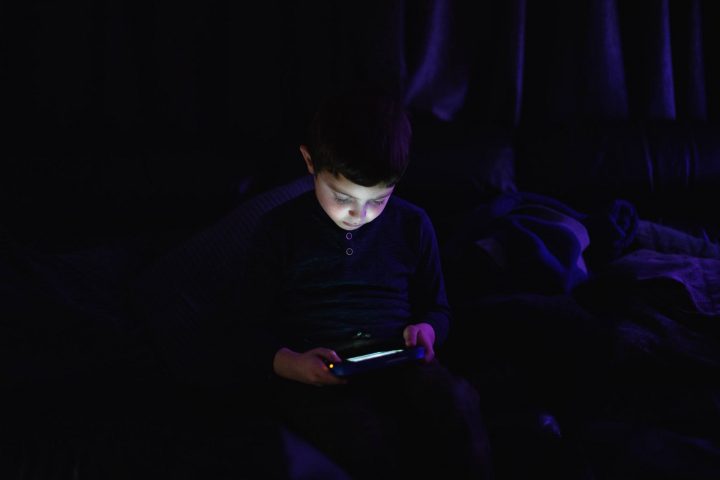When it comes to games like Fortnite, experts are warning parents to be extra cautious about who their child is talking to.

Authorities in New Jersey recently arrested 24 men, including a police officer for allegedly attempting to lure minors into sexual activity via social media sites or online games like Fortnite, NJ.com reported.
As part of a weeklong sting, authorities noted some men chatted with undercover officers for a day or two before meeting, while others talked straight throughout the week.
“We want child predators to know that we are on social media too — and the child they target may be the undercover officer who puts them in handcuffs,” said New Jersey Attorney General Gurbir Grewal.
For parents, authorities added the best thing parents could do was to be more aware of not only what games their child or teen played online, but also who they interacted with.
READ MORE: Mom horrified to see her 7-year-old’s Roblox character ‘gang-raped’ in popular online game
Making sure your child is safe
Toronto freelance journalist Josh Ostroff, who regularly writes about parenting and gaming, told Global News that online safety-proofing depends on the child’s age, but more importantly, parents need to have a conversation with children on stranger danger in a digital space.
“Make sure your kids know that people on the internet aren’t necessarily who, or how old, they say they are; that children should never share any personal information; and that they should only ‘friend’ people online that they also know offline,” he said.
“Parents should also be using safety programs and settings that allow them to restrict and monitor their children’s offline activity. Older kids may still be able to figure out workarounds though, so it’s incredibly important to have meaningful and honest conversations about internet safety.”

Games like Roblox, he added, are online multiplayer games with millions of users, and when someone signs up, they are open to friend requests or messages. Parents should be aware of each game’s security settings and ensure their child isn’t getting chat messages or friend requests from people they don’t know.
READ MORE: COMMENTARY — Stop scapegoating video games

Get breaking National news
Sony’s PlayStation 4 and Microsoft’s Xbox One also have online safety settings that allow restrictions on game access and player communications, he added so you can adjust it based on your child’s age and maturity level.
Parenting coach Julie Romanowski said parents should also let their child know what they can and can’t do online when it comes to video games.
“Also, schedule game time as much as possible so a child can ‘predict’ when they are going to get it instead of constantly nagging you or negotiating with you about when they can play,” she told Global News.
“It would be ideal to choose a time when you are around to be able to check in on your child or have them play in an area of the house that is nearby you. For example, in the living room right in front of the kitchen where you are prepping dinner.”
It’s not just games online
Ostroff added with the recent arrests in New Jersey, in particular, these alleged predators were using a variety of methods to lure children. “Anytime your child can be messaged by strangers, be it on social media, YouTube, apps or multiplayer games, there is a potential threat from adults posing as children and teens,” he explained. “Yes, teach your kids to be careful while gaming but also while not gaming.”
READ MORE: Research shows no link between video games and violence – Donald Trump still suggests there is
While he sees the appeal of playing a game which lets you talk to the people you are playing with, it’s better for your child to surround themselves with people they know.
“These dangers are a rarity given how many people uses these services every day, but the internet can be a terrible place and in this day and age, you need to raise your kids to know how to protect their privacy and security.”
Should you ever ban games?
Romanowski added that as parents, if you feel a game is inappropriate, violent, aggressive or even something that makes your child act or react in negative ways, you have the right to ban it.
“It’s important to remember to not ban games in haste or as a punishment,” she explained. “Have a discussion with your child about how you feel about it and why it’s inappropriate.”








Comments